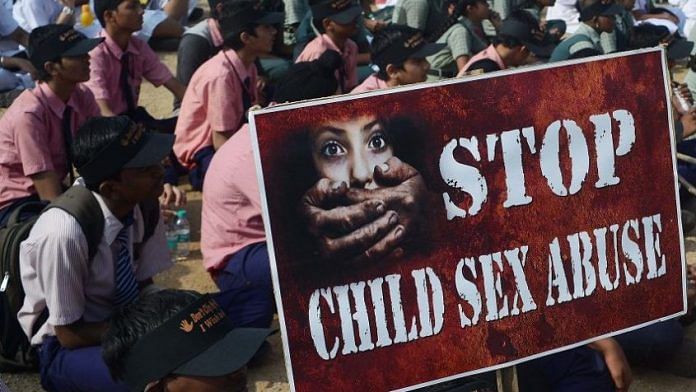Legal experts, activists say government’s death penalty ordinance is a knee-jerk reaction and ‘politics of distraction’.
— A woman says her husband had sexually abused her daughter twice. When she took the matter to the police, they treated her like she was lying. The case has been dragging on and the hope for justice for her daughter is grim.
— A man alleges that his daughter was sexually abused by one of his relatives. He tried to take legal recourse but fighting the case proved be traumatic for the child and her parents. After years of battling the system, the case ended in an acquittal.
— A woman says her 13-year-old son was sexually abused by other boys. The perpetrators were released six days after being arrested. She wanted an apology from the perpetrators. Could the court with all its might not ensure that much, she asks.
New Delhi: The parents of child rape survivors who shared these testimonies at an event Monday don’t seek death for their children’s violators, but a smoother, cooperative legal justice system.
It is to highlight this point and reject the “reactionary, impractical” Criminal Law (Amendment) Ordinance 2018 — passed by the government last week — that a group of survivors, legal experts and organisations have come together in an appeal to reconsider the death penalty as a punishment for “girl child rape”.
Calling the move a squarely “political” one, former chief justice of Delhi High Court A.P. Shah said that instead of addressing the root cause of the problem of child sexual abuse, the government has chosen to impose death penalty — a move that is bound to be “counterproductive”.
“Death penalty does not consider the nature of child sexual abuse,” he said, citing several studies that show that most cases of child sexual abuse — over 90 per cent — involve a known person who happens to be a father, a stepfather, a relative or a brother.
Given this, the already existing pressure on children to turn hostile is bound to increase, Shah said, speaking at a panel discussion in the capital. Advocate Vrinda Grover, child sexual abuse activists — Abuja Gupta and Bharti Ali — founder of Centre for Death Penalty, Anup Surendranath besides the parents of child survivors were also present.
Disturbing trend
According to the latest figures from the NCRB, of the total cases of rape of women and children in 2016, in over 94 per cent of the cases (34,650 out of 36,657 cases), the offender was known to the victim — he was either a close family member, a neighbour, or an acquaintance.
The way trials in rape cases are conducted is very disturbing, Shah said. Children are routinely exposed to the rapists and made to go through aggressive cross-examinations; there are no special courts or trained public prosecutors on ground. In such a scenario, for the government to resort to a “populist measure is worrisome”, Shah added.
All the panelists agreed that the government’s response to the public outrage following the rapes of two minors in Kathua and Unnao, was “knee jerk”, and had failed to take into account the realities and dynamic of child sexual abuse.
“Victims often do not want to break away ties from their abuser, let alone hang him,” said Gupta, who runs the RAHI foundation.
However, Grover sought to bring the attention to the “subtext” of the ordinance. While POCSO deals with cases of male and female child sexual abuse in an identical way, the government’s ordinance stipulates death penalty only when a girl child below the age of 12 is raped.
“Doesn’t this also reflect a patriarchal mindset where we are more aggrieved when a girl is violated?” she asked. Further, the government’s bid to deal with a girl below 12 years of age differently from a girl over 16 years of age is reminiscent of colonial jurisprudence, she argued.
“As per colonial jurisprudence, a girl under 12 is innocent, a girl between the age of 12-16 may have lured the perpetrators, hence the idea was that her access to the justice system should be curtailed,” she said.
In a statement endorsed by over 111 individuals and organisations, it has been emphasised that it is the implementation of laws and certainty of punishment that are “real deterrents”, and not death penalty.
That is the reason why India is only the 14th country to have death penalty for child rape, Surendranath argues. “Because it simply does not work,” he said. “There is a mountain of evidence that it is, in fact, harmful for the children,” he said, dismissing the ordinance as “politics of distraction”.



